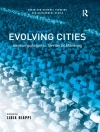Why India’s problems won’t be solved by rapid economic growth alone
When India became independent in 1947 after two centuries of colonial rule, it immediately adopted a firmly democratic political system, with multiple parties, freedom of speech, and extensive political rights. The famines of the British era disappeared, and steady economic growth replaced the economic stagnation of the Raj. The growth of the Indian economy quickened further over the last three decades and became the second fastest among large economies. Despite a recent dip, it is still one of the highest in the world.
Maintaining rapid as well as environmentally sustainable growth remains an important and achievable goal for India. In An Uncertain Glory, two of India’s leading economists argue that the country’s main problems lie in the lack of attention paid to the essential needs of the people, especially of the poor, and often of women. There have been major failures both to foster participatory growth and to make good use of the public resources generated by economic growth to enhance people’s living conditions. There is also a continued inadequacy of social services such as schooling and medical care as well as of physical services such as safe water, electricity, drainage, transportation, and sanitation. In the long run, even the feasibility of high economic growth is threatened by the underdevelopment of social and physical infrastructure and the neglect of human capabilities, in contrast with the Asian approach of simultaneous pursuit of economic growth and human development, as pioneered by Japan, South Korea, and China.
In a democratic system, which India has great reason to value, addressing these failures requires not only significant policy rethinking by the government, but also a clearer public understanding of the abysmal extent of social and economic deprivations in the country. The deep inequalities in Indian society tend to constrict public discussion, confining it largely to the lives and concerns of the relatively affluent. Drèze and Sen present a powerful analysis of these deprivations and inequalities as well as the possibility of change through democratic practice.
Giới thiệu về tác giả
Jean Drèze has lived in India since 1979 and became an Indian citizen in 2002. He has taught at the London School of Economics and the Delhi School of Economics, and he is now a visiting professor at Allahabad University. He is the coauthor (with Amartya Sen) of
Hunger and Public Action and
India: Development and Participation.
Amartya Sen is the Thomas W. Lamont University Professor and professor of economics and philosophy at Harvard University. He won the Nobel Prize in Economics in 1998. His many books include
Development as Freedom,
Rationality and Freedom,
The Argumentative Indian,
Identity and Violence, and
The Idea of Justice.












